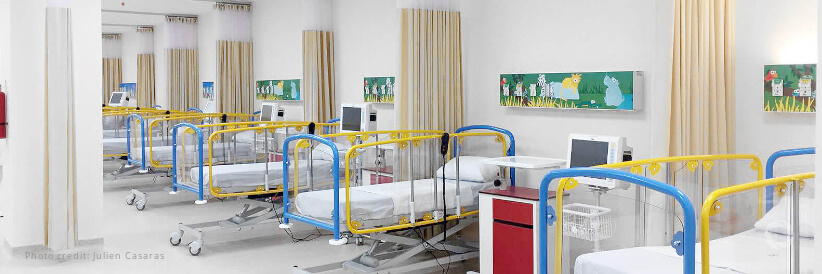In Ecuador, limited and outdated ambulances can restrict emergency health services across the country. In remote areas, the complex geography and long distances to the nearest health facility can make it difficult for patients to urgently access hospitals.
To enhance emergency health services and pre-hospital care, UNOPS is working with Ecuador’s Ministry of Public Health to procure and deliver 186 advanced life support ambulances across Ecuador’s 26 provinces. The new ambulances will improve access to critical health services for vulnerable groups – particularly those living in remote areas – including indigenous communities, immigrants, pregnant women, and the elderly.
”These ambulances will play a crucial role in saving lives, prioritizing the well-being of everyone – including drivers, paramedics, and patients – while also creating opportunities for high-quality care, ”Guillermo Lasso – President of Ecuador.
According to Ecuador’s Ministry of Public Health, the new ambulances will support approximately 10 million people in the country. Each ambulance will be equipped with 33 types of advanced life support equipment and provided with maintenance and technical support for the next two years.
“These ambulances will help provide life-saving primary healthcare to vulnerable and remote communities, and support better healthcare for the people of Ecuador,” said Mónica Siles, Director of the UNOPS Multi-Country Office in Peru.
Under the project, nursing and paramedic staff will be trained on the use of the new life support equipment – including defibrillators, oximeters, resuscitation kits, and diagnostic kits. Ambulance drivers will also receive training on vehicle maintenance and safe driving practices.
Healthcare workers and paramedics have welcomed the new ambulances as an important step towards enhanced emergency care and the safer transportation of patients.
“Thanks to these ambulances, we can ensure the optimal transportation and transfer of a patient from the emergency site to a hospital [or] care center,” said Dr. Liset Moreira, Medical Assistance Officer for Emergency Service at the Regional Health Hospital of Manta.
This project supports the government of Ecuador’s Ten-Year Health Plan 2022-2031, aimed at promoting equitable health services and timely medical care.

